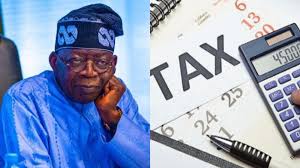Despite efforts by successive governments at tackling corrumption, the scourge jas continued to hold the country’s fevelopmetal quests back.
Indeed , Chatham House reports give the impression yhe corruption in Africa’s most populous nation may be irredeemable.
Analysis of Nigeria’s anti-corruption efforts over the last 25 years reveals uneven progress, too often set back by politicization, weak institutions and double standards among leaders.
BusinessDay notes that endemic nature of corruption in Nigeria has brought about impunity, mostly at all levels of government, which has continued to undermine attempts at meaningful policy implementation and prevented the establishment of strong and responsive institutions.
— Drawing on findings from each of the Chatham House Africa Programme’s Social Norms and Accountable Governance (SNAG) project’s household surveys and supporting research, this paper argues for a shift in anti-corruption approach from a series of often isolated campaigns towards a more networked and participatory strategy. In particular, the paper highlights the crucial role of ‘integrity role models’ – credible individuals resisting corruption and championing reforms and behavioural change within Nigeria’s institutions, government and society, despite steep challenges and considerable personal costs.
— Institutions are not self-enforcing. Neither are reforms self-implementing. In corrupted systems, credible, competent and influential individuals are therefore crucial for ‘seeding’ new norms (modelling and making visible positive behaviour) and catalysing change. The abandonment of established norms and practices often comes with costs, and requires credible people willing to take the lead and demonstrate to others that it is possible to do things differently. These individuals bear the initial risks and costs of standing up against corruption, despite the immense pressures against doing so.
— The findings of the SNAG project’s fourth national household survey show the scale of Nigeria’s corruption challenge. The survey found that a majority of respondents – 59.2 per cent – believed that power was considered more important than honesty in their community, while 61.5 per cent believed that others in the community would be willing to compromise their ethical values for control of scarce resources. Many individuals see their communities and Nigerian society at large as places where honesty and integrity are valued less than power and the control of resources. As a result, compromising personally held values is tolerated, deemed acceptable or seen as unavoidable. However, the survey also showed that a large majority of Nigerians – 73.4 per cent – agreed that most people in their community ‘feel bad when someone is being taken advantage of’, highlighting the existence of shared values of empathy and fairness.
— These contrasting views demonstrate the complicated and ambivalent
relationship most Nigerians have with corruption. Many Nigerians recognize it as a real problem but feel resigned, sensing that it is the price for getting things done. The persistence of corruption can lead people to view anti-corruption measures with scepticism. As a result, people often doubt the sincerity of government reforms and initiatives and their potential for success.
— Shifting to a so-called ‘network-based’ approach to fighting corruption could help to change this. Better coordination with and between reform-minded lawmakers, professional networks, grassroots leaders and individuals can have a positive influence on public opinion, and both inspire and sustain collective action. This approach would leverage the influence of integrity role models in promoting changes to social norms as an enabler of legally binding reforms. It offers a way to achieve mobilization and pressure at different levels of Nigerian society, through building links between reformers, using the logic of networked solidarity, capacity and shared learning.
— While top–down reform agendas can lead to institutional change, such ‘big bang’ approaches are rare and the political will to initiate them still requires a collective, political and strategic process. Therefore, a more context-aware approach is essential – one that aims to overcome barriers to cooperation and form influential coalitions of role models and pro-reform organizations. Strong coalitions can effectively challenge the status quo, capitalize on reform opportunities and enact change in a way that is perceived as locally legitimate. This paper proposes a series of recommendations to help develop such an approach:
— Implement legal reforms to accelerate norm change and meet communal expectations of fairness and accountability by mandating public asset declarations for officials and ensuring public access to these records. The government should strengthen existing frameworks, like the Code of Conduct Bureau, and enhance collaboration between anti corruption agencies and financial institutions to promote transparency and community involvement in the management of recovered assets.
— Protect integrity role models from retaliation and speed up judicial procedures through comprehensive protection programmes, including confidential reporting channels, legal safeguards, safety protocols and mental health support. The urgent enactment of whistleblower legislation by the National Assembly is crucial to portray whistleblowing as courageous and commendable.
Additionally, establishing special courts for corruption cases would speed up judicial processes and reinforce societal attitudes against corruption.
— Use technology to increase transparency at state and local levels through e-procurement systems, empowered audit offices, and legal frameworks for tracking project funds to promote collective accountability and encourage citizen engagement in governance. Expanding digital tools and open data initiatives can streamline bureaucracy and strengthen oversight, ultimately reducing corruption, increasing efficiency and enhancing public trust.
— Emphasise integrity by using examples of role models to cultivate deeper collective values among young people and promote generational shifts. Recognizing individuals who resist corrupt norms fosters a culture of integrity and accountability.
— Train integrity role models in diplomacy and strategic thinking to help them manage political and interpersonal challenges. Leadership training should focus on ethics and decision-making, along with providing resources for risk assessments and insights from successful anti-corruption strategies.
— Build networks to bring reformers together and amplify their voices through resource hubs to share experiences and best practices, fostering solidarity and shared values. Expanding these networks to include partnerships between government agencies and NGOs, along with multi-stakeholder coalitions, can enhance anti-corruption collaboration.
— Seek international support for socially meaningful penalties, especially after the US’s recent decision to suspend enforcement of the Foreign Corrupt Practices Act. Nigeria’s other partners, such as the UK, must increase funding for anti-corruption bodies to allow for effective investigations and enforcement.
Implementing visa bans on officials credibly implicated in corruption can raise personal costs for corrupt behaviour and strengthen societal accountability.














